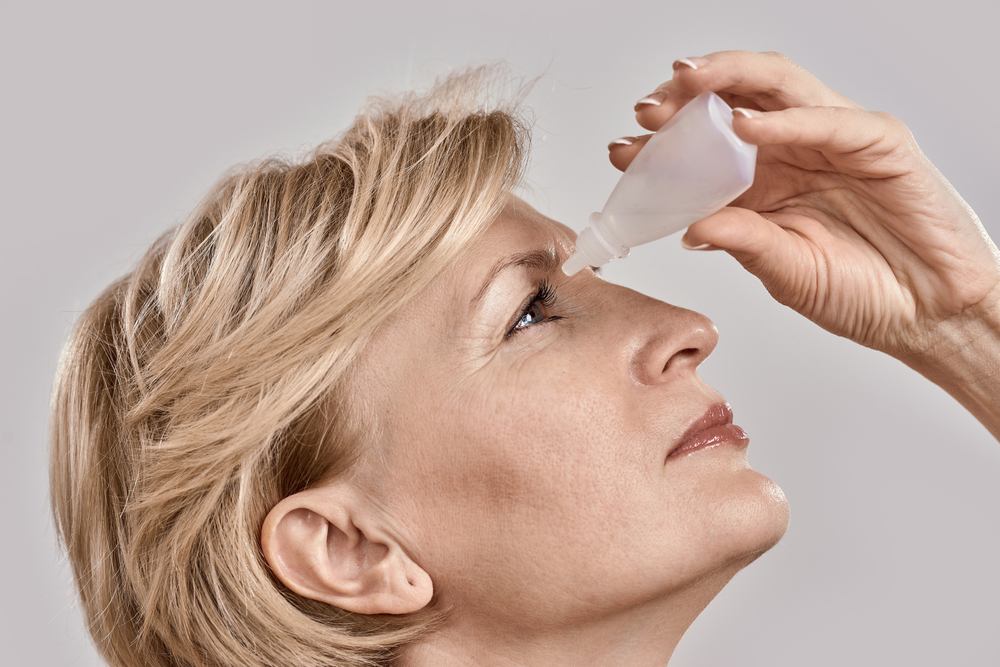
Tears are a combination of water for moisture, oils for lubrication, and mucus, so they spread evenly. They also have special proteins and antibodies to prevent infection. The glands around the eye provide these ingredients necessary for various reasons.
Without them, your eyes won’t have enough moisture and will feel gritty. It will also feel like something’s in your eye. You will experience itching, redness, light sensitivity, and blurry vision. These are common symptoms of dry eyes, an eye condition affecting millions in the U.S.
What Is a Dry Eye?
Dry eye is an eye condition affecting the tear film, which covers the eyes’ surface and protects them. If you want to see clearly and comfortably, your tear film must be smooth and stable. A disrupted tear film results in uncomfortable symptoms. Several factors can disrupt the tear film, making it hard to treat dry eyes.
What Causes Dry Eye?
One of the biggest factors causing dry eyes is aging. Tear production decreases when you age, so older people often have dry eyes. It also occurs much more in post-menopausal women, although both men and women can be affected. Below are some of the possible causes of dry eye:
Use of contact lenses
Dry indoor environment
Weather
Too much time looking at digital screens
Smoking
Allergies
Hormonal changes
Illnesses – diabetes, lupus, rheumatoid arthritis, and scleroderma
Medications – antihistamines, tranquilizers, birth control pills, some heart medications
Medical conditions – eye conditions, neurological conditions, endocrine conditions
Surgery – LASIK, cornea surgery, and cataract surgery
Dry Eye Treatments
Your doctor aims to soothe your eyes and help you see clearly. They also want to ensure your eyes won’t have further damage. Of course, your doctor wants to treat the underlying cause of your dry eye. Your doctor will help you find the best treatment to provide satisfying results.
Home Remedies
Start with some home remedies. Your eye doctor will ask you to avoid environmental triggers like air vents, cigarette smoke, wind, and allergens. A humidifier is also an excellent remedy, especially when the humidity is too low. Resting your eyes helps, of course, along with a warm compress over your eyes. Taking omega-3 fatty acid supplements should also help ease the symptoms.
Eye Drops
Eye doctors recommend eye drops for dry eye. These include artificial tears and ointments. You can also have topical cyclosporine A, Varenicline, and Lifitegrast eye drops. There are also autologous serum drops and custom artificial tears from your blood.
Punctal Occlusion
Punctal occlusion can help if your eyes have low tear production. Here, a plug is inserted into the tear drain. Through this, your eyes can have more tears. Punctal occlusion can be temporary or permanent, the former using a plug that quickly dissolves.
In-Office Procedures
Your doctor can perform at least two procedures to cure your dry eye. The first is thermal pulsation therapy, massaging and warming the eyelids to boost the Meibomian glands’ ability to create oil. The second is intense pulsed light therapy, which uses light pulses to melt whatever’s blocking the Meibomian glands.
Therapeutic Contact Lenses
When you have dry eyes, just blinking can be too painful. This happens due to the eyelid rubbing against the dry eye’s surface. One way to help lubricate the eye’s surface is using therapeutic contacts. They’re available in soft bandage lenses (protect and heal damage to the cornea) and rigid scleral lenses, larger contacts that lubricate the eyes and correct your eyesight.
Learn more about various treatment options for dry eye at Blue Hills Eye Associates. Call us at (781) 794-2200 or visit our office in Braintree, Massachusetts.








